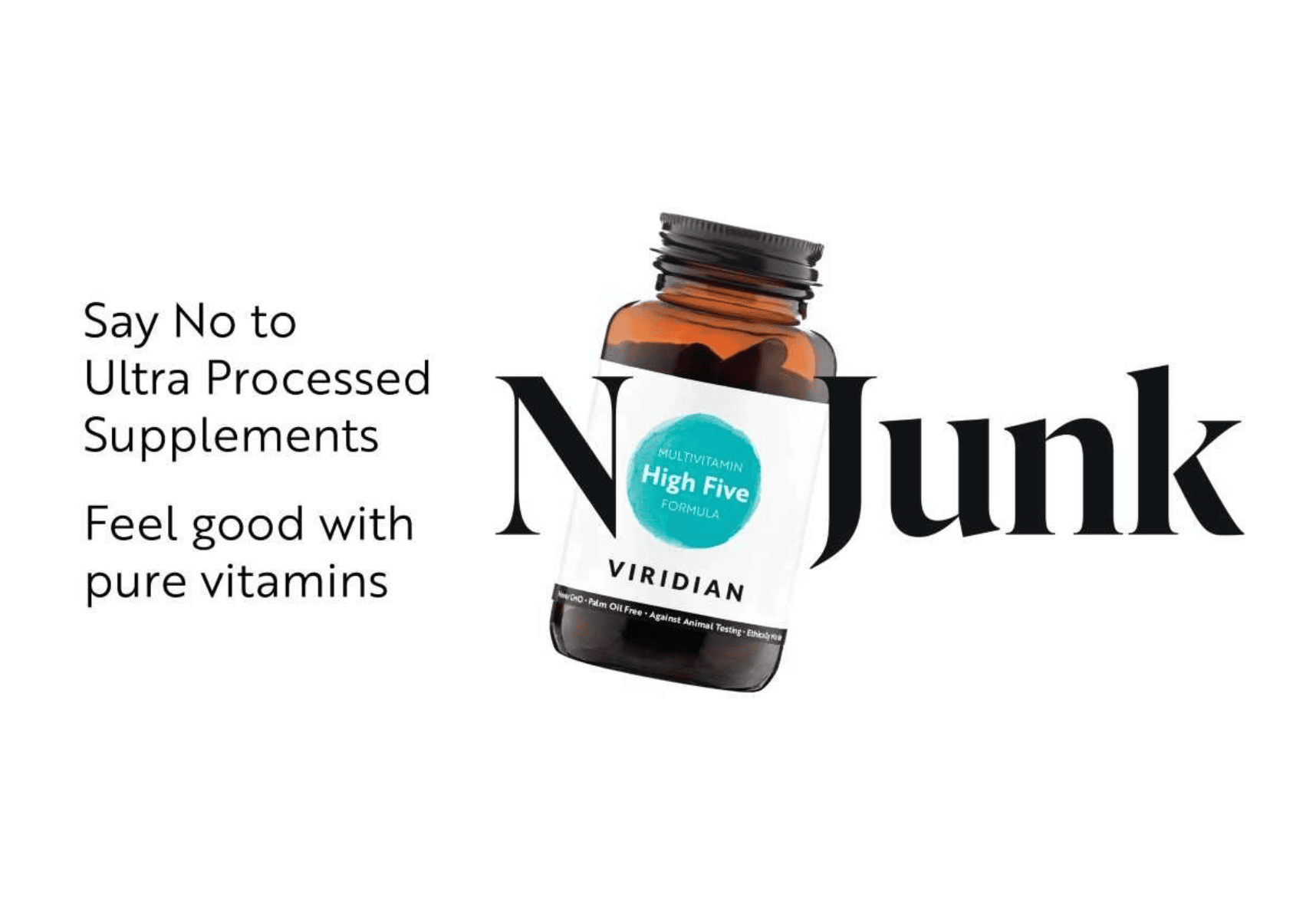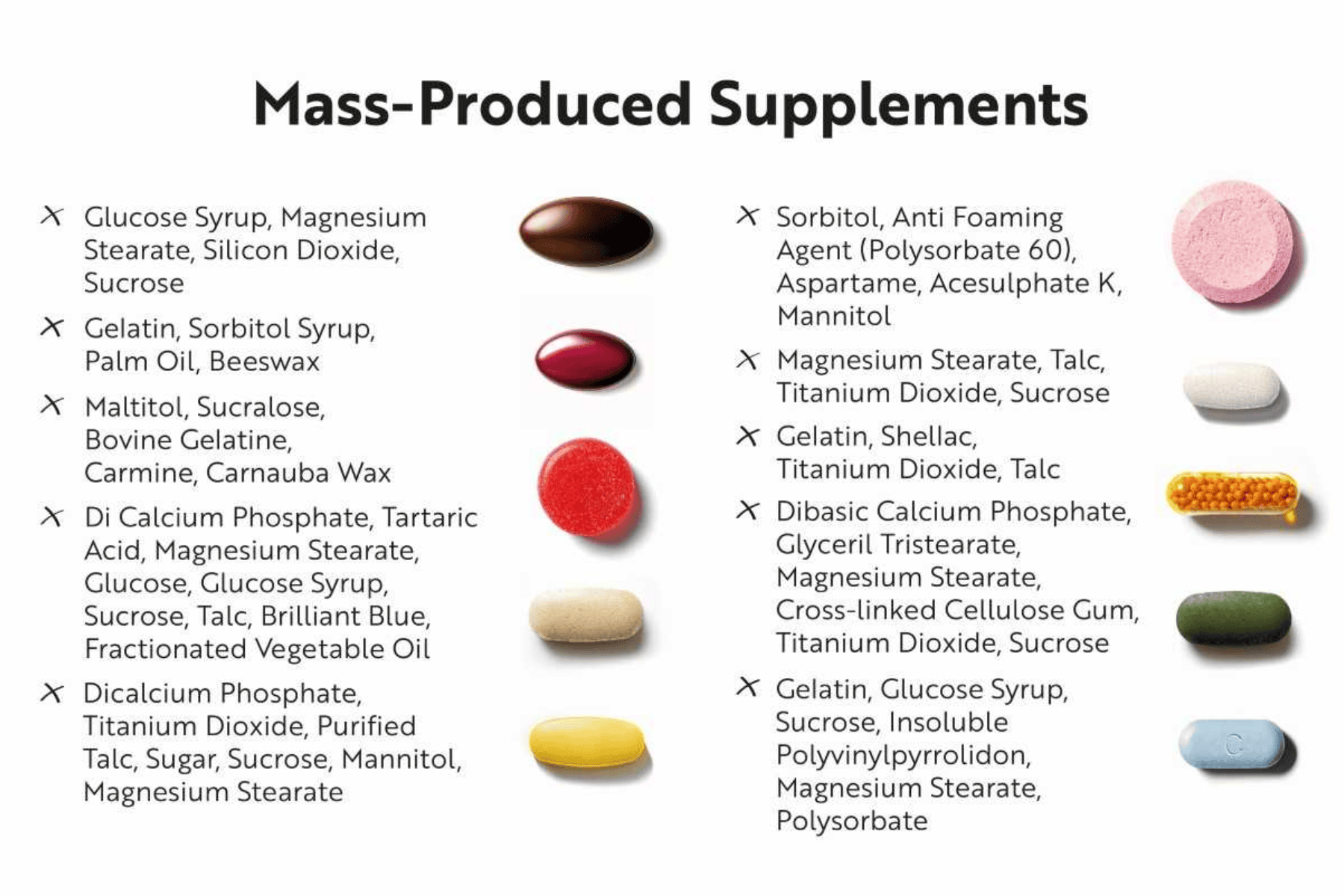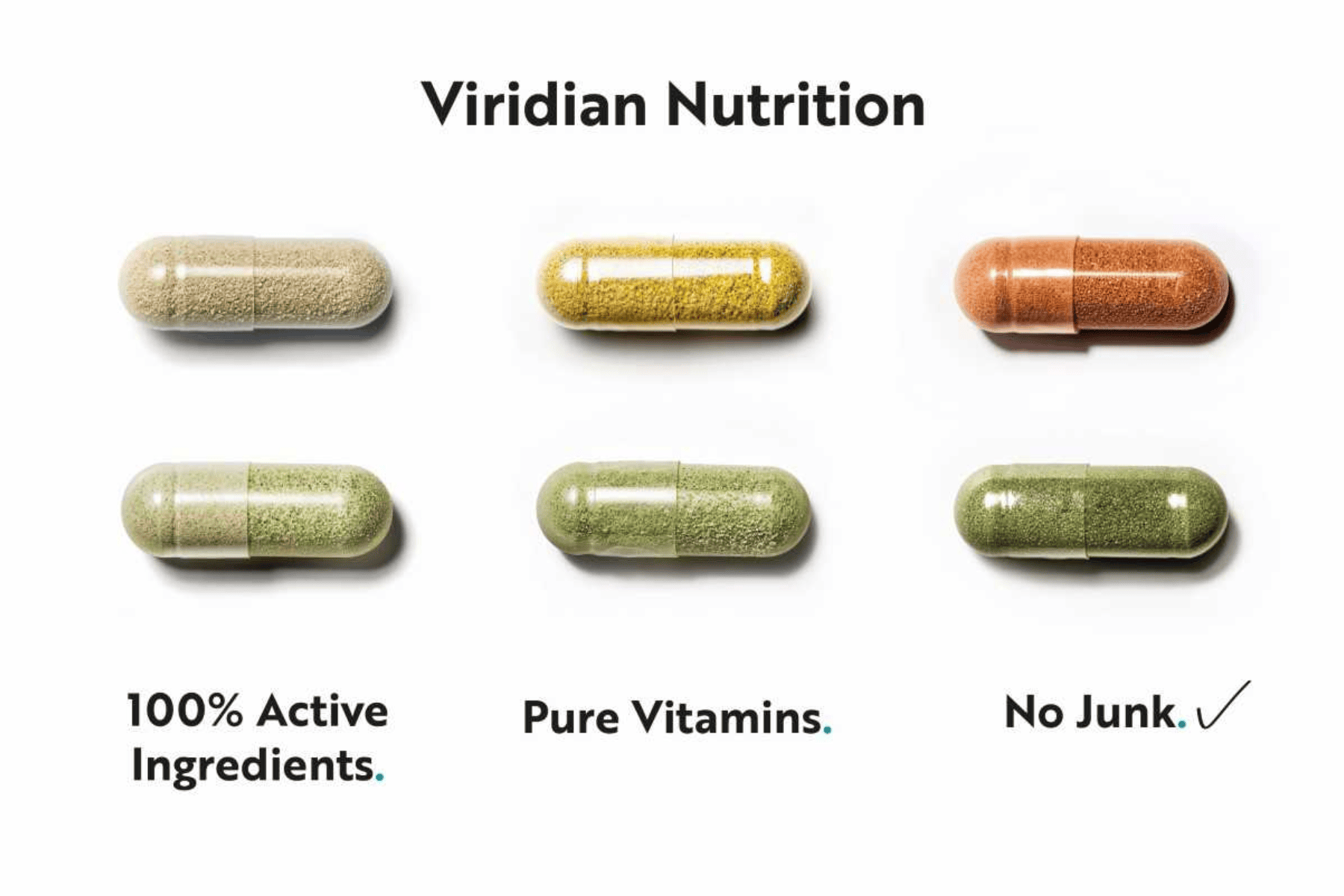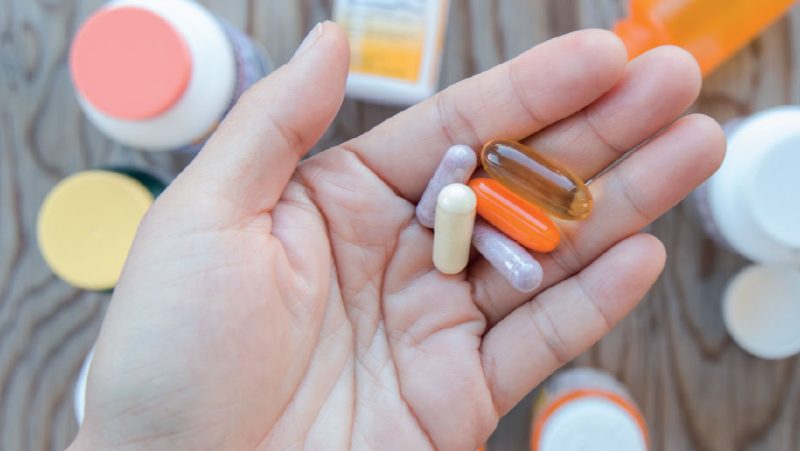
The Hidden World of Ultra
Processed Food Supplements
You’ve heard of ultra processed foods (UPFs) but there’s another source of unwanted chemicals found in ultra processed supplements. Nutritional Therapist Corin Sadler at Viridian Nutrition, explains further.
Reading time: 3 minutes
Processed vs Ultra Processed?
Most food that we eat goes through some kind of processing and not all of it is bad. However, more industrial processing is often detrimental. UPF includes anything with a long list of ingredients that you wouldn’t add if you made it at home yourself, think preservatives, colours, flavours, thickeners, stabilisers, or anything chemical sounding. This category includes many foods found commonly in our cupboards like breakfast cereal, mass-produced bread, and meat or plant-based ready meals.
UPFs tend to be higher in sugar and/or sweeteners, and higher in saturated fat and calories. There are significant health consequences of a highly processed diet, including increased risk of diabetes, cardiovascular disease, irritable bowel syndrome, depression, cancer, and obesity, as well as allergic and autoimmune disorders, childhood asthma and childhood cardio-metabolic changes. Eating an ultra processed diet often leaves people overweight and lacking in key nutrients, vitamins and minerals. Avoiding these UPF can therefore be beneficial for all ages.
By its very nature you can’t avoid processing when making supplements, but you can certainly take steps to keep them as pure and minimally processed as possible. In particular, avoiding excipients which don’t have any nutritional benefits.
How to Identify an Ultra Processed Supplement
On the market, readily available in supermarkets and online, you will find highly coloured and flavoured liquids, effervescent tablets and chewy gummies which are commonly stacked full of additives and excipients. The additives are designed to make things taste pleasant and to also reduce the cost of production. Often aimed at children’s health, although increasingly adults too, clever messages divert focus from their additive laden, less than healthy formulas.

Research has linked many additives to health concerns, including artificial preservatives such as sodium benzoate contributing to behavioural issues in children and hyperactivity. So, what should you be looking to avoid?
Key ingredients to avoid in supplements:
Carrageenan. Used to thicken products or emulsify ingredients.
Magnesium stearate and stearic acid. These are commonly used in chewable and tablet supplements to help speed up manufacturing or to coat tablets for pressing.
Titanium dioxide. This mined white powder is used in paint and plastic to create an even colour. It can also be found in toothpaste and food stuffs such as ice creams, sweets, creamers, spreads, dressings and lots more.
A further list can be found in the Viridian No Junk Report.
Selecting good supplements

When choosing supplements, it’s best to keep it simple as far as ingredients go. Always read the label. Most reputable brands will have 100% active ingredients with no nasty additives whatsoever. Choose a clean and pure supplement over an ultra-processed one.
For more information or to read the Viridian No Junk Report, visit: www.viridian-nutrition.com/nojunk
About the author
Corin Sadler, DipION, FDSc, Nutritional Therapist, Viridian Nutrition
Corin has a Diploma in Nutritional Therapy from the Institute for Optimum Nutrition and a Foundation Degree in Nutritional Therapy. She has a wealth of clinical experience in natural health and wellbeing, and a detailed understanding of the role nutrition has in optimising overall wellness.





